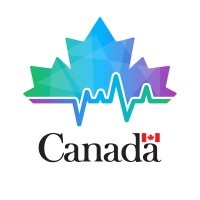
Closed
Financial assistance program for the development of active transportation in urban areas (TAPU)
Last Update: October 27, 2025
QC, Canada
Funding for developing active transportation infrastructure in urban areas
Grant and Funding
At a glance
Funding available
Financing goals
Reduce the ecological footprint
Increasing community impact
Eligible Funding
- Maximum amount : 3,000,000 $
- Up to 50% of project cost
Timeline
- Receipt of requests is now closed
Eligible candidates
Eligible Industries
- Educational services
- Public administration
Location
- Quebec
Legal structures
- Non-profit
- Public or Parapublic institution
Annual revenue
- All revenue ranges
Organisation size
- All organization sizes
Audience
- Indigenous Peoples
Non-profit candidates
Sector of operation
- Higher Education
- Environment
- Economic, Social and Community Development
Target groups
- Indigenous peoples
- Nonprofits / charities
- Academia / students
Revenue structures
- All structures
Scope
- Municipal
- Regional
Overview
The Financial Assistance Program for the Development of Active Transportation in Urban Areas (TAPU) supports municipalities and designated organizations in Quebec to develop safe, efficient pedestrian and cycling infrastructure, as well as self-service bike systems, to encourage healthier, environmentally friendly transportation. The program provides funding covering up to 50% of eligible costs, with a maximum of $3,000,000 for bike-sharing systems, $2,000,000 per structure, and $1,000,000 for other projects.
Activities funded
- Development and enhancement of pedestrian and cycling networks in urban areas.
- Projects that improve safety for pedestrians and cyclists through compliant infrastructure.
- Implementation of traditional or electric bike-sharing systems.
Examples of admissible projects:
$ 26,500
Building barrier-free facilities in a youth performing arts centre
$ 38,500
Digitizing museum archives for expanded public online access
$ 47,000
Creating a zero-emission courier fleet with electric cargo bikes
$ 80,000
Launching an e-waste recycling hub using modern separation technology
$ 60,000
Installing rooftop solar panels on a community grocery cooperative
$ 25,000
Upgrading food processing equipment for an organic bakery start-up
Eligibility
- The applicant must be a municipality, a regional county municipality (MRC), the Montréal or Québec metropolitan community, an arrondissement or agglomeration council (subject to relevant legislation), an Indigenous community represented by its band council, or a non-profit organization mandated by municipal resolution to manage the infrastructure.
- Cégeps and universities (public or private) are eligible.
- Organizations responsible for public transit are eligible, but only for projects related to self-service bicycles.
- The applicant and its subcontractors must not be listed in the Register of Enterprises Ineligible for Public Contracts (RENA).
- The applicant must not be in default of obligations arising from prior financial assistance from a Quebec government ministry or agency.
Who is eligible?
- Municipalities and regional county municipalities (MRCs)
- Montreal Metropolitan Community
- Quebec Metropolitan Community
- Borough or agglomeration councils (subject to legal competence divisions)
- Indigenous communities represented by their band council
- Non-profit organizations mandated by resolution for infrastructure management
- Colleges (cégeps) and universities, public or private
- Public transit organizations (only for bike-sharing systems)
Who is not eligible
- Organizations or their subcontractors registered on the Register of Enterprises Ineligible for Public Contracts (RENA).
- Organizations that have failed to meet their obligations after being formally notified in connection with previous financial assistance granted by a ministry or government agency of Quebec.
Eligible expenses
- Acquisition of land or real rights, including legal and evaluation fees.
- Surveying fees.
- Financial compensation costs, including restorative works directly related to the project.
- Site preparation expenses, such as clearing, earthworks, relocation of public utilities, and electrical connections for bike-sharing stations.
- Purchase costs of bikes, stations, and electronic equipment for bike-sharing fleets.
- Contracted services for project execution, including planning and design services.
- Materials and supplies specified in the project plans, including transport costs.
- Rental fees for tools, equipment, and machinery (including municipal machinery) within set government rates.
- Costs for signage equipment, including markings and traffic lights related to eligible facilities.
- Direct costs for bicycle parking (racks, docks, shelters, etc.).
- Costs related to surveillance and communication devices, where applicable.
- Quality control fees.
- Acquisition costs for permanent automatic counting equipment for cyclists and/or pedestrians.
- Contingency fees (up to 10%).
Eligible geographic areas
- Quebec (projects must be located within an urban perimeter or connect urban perimeters within Quebec)
How to apply
1
Verify eligibility
- Review the program objectives to ensure your project aligns with the grant's focus
- Consult the eligible applicant and project criteria
- Assess if your planned expenses are admissible
2
Prepare application documents
- Gather information and required documents about your organization
- Prepare a general and detailed description of the project
- Obtain notarized or planned agreements needed for the project
- Detail expenses by category and prepare a financing plan
- Ensure you have a council resolution authorizing the submission
3
Submit application online
- Complete the online application using the Electronic Service Delivery (PES)
- Upload all required documents and details
- Use the calculation grid to specify the requested aid amount
- Ensure the application is complete and accurate before submitting
4
Await application review
- Wait for the Ministry’s analysis based on established criteria
- Monitor the program website for updates about the next call or your application status
- Be prepared to provide clarifications if requested
5
Receive funding decision
- Receive official written notification of the Ministry’s decision
- If approved, review the terms detailed in the acceptance letter
- If refused, review the reasons and consider improvements for future calls
6
Implement the funded project
- Send the required documents for the first payment (80%)
- Carry out the approved project as described in the application
- Keep records and supporting documents for eligible expenditures
7
Report project completion
- Prepare the end-of-project report and accounting documents
- Submit a council resolution confirming project completion
- Send photos and monitoring data if required
- Submit the final documents by December 31 of the financial year
8
Receive final payment and ensure compliance
- Receive the final payment after verification of submitted documents
- Repay any overpayment if the final eligible expenses are lower than initially calculated
- Comply with visibility requirements outlined by the Ministry
Additional information
- The financial assistance is provided in two installments: 80% upon submission of required documents following the award letter, and the remaining balance after acceptance of the final project report and council resolution.
- Beneficiaries must comply with the visibility standards set by the Ministry of Transport and Sustainable Mobility.
- Supporting documents, including a final project report and photographs, must be submitted through the online platform (PES) after project completion.
- Allocation of funds is dependent on compliance with mandatory reporting and documentation within the specified fiscal year.
Contacts
transport_actif@transports.gouv.qc.ca
4182666647
QC, Canada
Apply to this program
Frequently Asked Questions about the Financial assistance program for the development of active transportation in urban areas (TAPU) Program
Here are answers to the most common questions about the Financial assistance program for the development of active transportation in urban areas (TAPU). This section explains what the program is, how much funding is available, eligibility requirements, application deadlines, and other important details to help you determine if this grant is right for your business.
What is the Financial assistance program for the development of active transportation in urban areas (TAPU)?
How much funding can be received?
Who is eligible for the Financial assistance program for the development of active transportation in urban areas (TAPU) program?
What expenses are eligible under Financial assistance program for the development of active transportation in urban areas (TAPU)?
Who can I contact for more information about the Financial assistance program for the development of active transportation in urban areas (TAPU)?
Where is the Financial assistance program for the development of active transportation in urban areas (TAPU) available?
Is the Financial assistance program for the development of active transportation in urban areas (TAPU) a grant, loan, or tax credit?
Apply to this program
More programs like this

Grant and FundingOpen
ÉcoPerformance — Recommissioning of building mechanical systems
Gouvernement du QuébecFunding to optimize the operation of building mechanical systems

Grant and FundingClosed
NovaScience Program - Support for projects in scientific culture and innovation
Gouvernement du QuébecNovaScience promotes scientific culture and innovation development

Tax CreditsOpen
Tax holiday for a new business created to commercialize intellectual property
Ministère de l'économie, de l'innovation et de l'énergie du Québec (MEIE)Tax credit for commercialization of intellectual property (IP) in Quebec

Grant and FundingOpening Soon
Flood Resilience and Adaptation Program (PRAFI) - Resilient Development Component
Ministry of Municipal Affairs and HousingSupports municipal flood resilience and adaptation infrastructure projects

Grant and FundingOpening Soon
Flood Resilience and Adaptation Program - Community Resilience and Relocation Component
Ministry of Municipal Affairs and HousingSupports municipal relocation and resilience projects in flood-risk areas

Grant and FundingClosed
Call for projects to combat homophobia and transphobia
Gouvernement du QuébecFunds Quebec organizations’ projects combating homophobia and transphobia

Grant and FundingClosed
Accelerating the local climate transition - Component 1
Environnement Québec (MELCC)Supports municipal climate action planning and implementation in Quebec

Grant and FundingOpen
Innovative Projects Program
Hydro-QuébecSupports innovative, energy-efficient projects for multi-building developments

Tax CreditsWage Subsidies And InternsOpen
Financial assistance for the hiring of a person to integrate a job on a long-term basis
Gouvernement du QuébecSupports employers hiring candidates facing employment barriers

Grant and FundingClosed
Addressing Racism and Discrimination in Canada’s Health Systems Program
Health CanadaSupports culturally safe, equitable health services for marginalized communities
Sign up to our platform to access the Financial assistance program for the development of active transportation in urban areas (TAPU) information sheet for free
Get access to 4,000+ programs, practical guides, personalized alerts, and an AI assistant to support your grant applications.